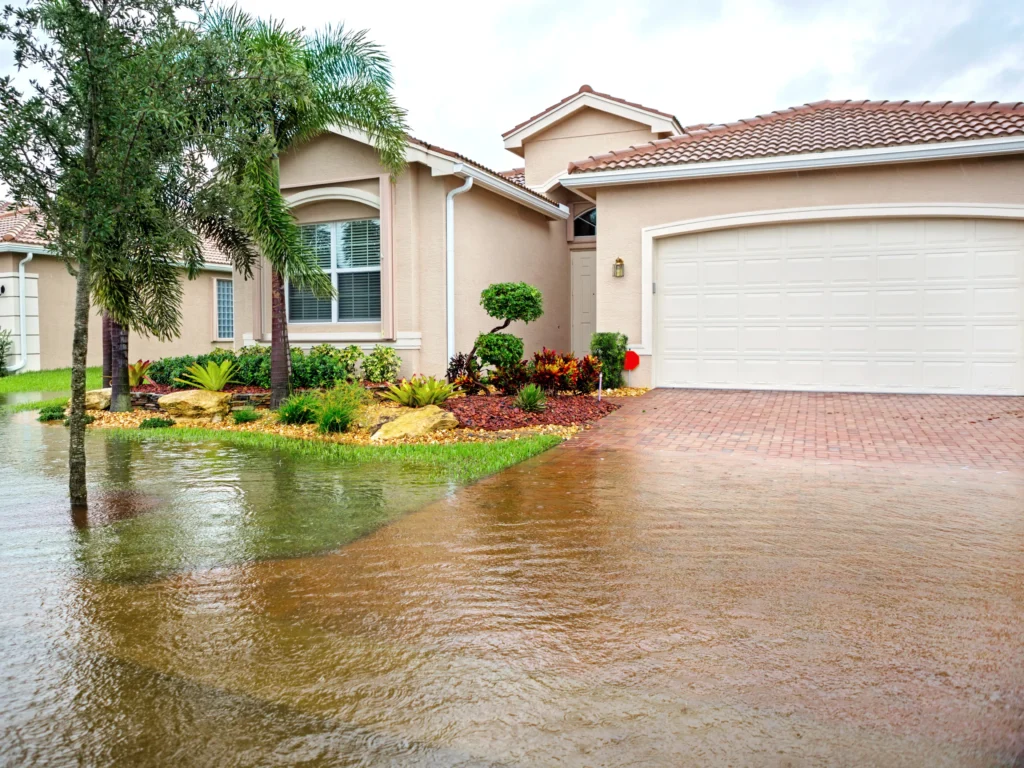Did you know the IRS offers tax relief to those affected by natural disasters? That’s correct. If you live in an area prone to natural disasters, like Florida, understanding this option becomes crucial. This article will discuss the tax relief option and how natural disaster tax planning can help individuals prepare for the worst while minimizing losses.
Understanding Natural Disaster Tax Planning
Definition and Importance
Natural disaster tax planning involves understanding your tax options and devising a tax strategy to mitigate the impact of natural disasters. Besides analyzing your finances, identifying deductions and tax credits available for your situation is crucial to natural disaster tax planning.
The importance of this process cannot be overstated. Effective natural disaster tax planning can help maximize tax relief and minimize losses in the unfortunate event of a disaster.
Milton And Helene Hurricanes
In late September 2024, Hurricane Helene made landfall in several states, including Florida, Georgia, North Carolina, South Carolina, and Virginia. Two weeks later, Hurricane Milton followed suit, destroying many homes, and putting the estimated damages of the two hurricanes at over $50 billion.
These natural disasters underscored the importance of IRS tax relief options and the necessity for effective tax planning in the aftermath of natural disasters.
According to the IRS, the agency may authorize tax relief for federally declared disaster areas and those that meet certain criteria set by the Federal Emergency Management Agency (FEMA). So, what tax relief is offered by the IRS? Tax deadline extensions and tax deductions are among the relief options provided by those who qualify. We’ll explore this more in the next section.
Key Tax Considerations After a Natural Disaster

Deductible Losses
If you live in a federally declared disaster area and experience lost or damaged property, you may be eligible to deduct those losses on your tax return. Similarly, any losses incurred by your business properties and operations may be reported as business expenses and deducted from your taxable income.
Tax Relief Provisions
Besides casualty loss deductions, the IRS provides other tax relief provisions: an extension to file taxes and a disaster loan or grant. As the IRS states, those whose addresses are in a federally declared disaster area can receive an extension for filing and paying their taxes.
Moreover, affected business owners and homeowners who have filed all required tax returns may apply for a grant or loan from the Small Business Administration.
Steps for Effective Natural Disaster Tax Planning

Pre-Disaster Planning
Natural disaster tax planning is all about being well-prepared in advance. Apart from knowing your options and how to maximize them, you also want to maintain accurate records and keep all crucial documents safe and readily available in case unfortunate events affect you.
You also want to check with your insurance providers to ensure you’re covered and understand your coverage to prevent mishaps.
Post-Disaster Actions
Taking immediate action following a disaster can help you recover faster. Document all losses for claiming deductions and insurance claims, and request a filing extension so you can plan your strategy to recover your financial losses without the stress of approaching tax deadlines.
If your insurance doesn’t cover some of your losses, explore other options that may be available to you. Ensure you get the right information from reliable sources, such as a tax attorney.
Utilizing Tax Credits and Incentives
Utilize all tax credits and incentives to offset your financial losses and accelerate recovery. To increase your chances of approval, ensure that all requirements are met and that you complete the correct forms.
Crucially, seek professional assistance if you are still unsure how to claim your deductions and tax credits. Accuracy is critical in achieving the desired result, especially in times of emergency, such as after a natural disaster.
Common Mistakes to Avoid
Misunderstanding Deduction Eligibility
One mistake that can be costly during natural disasters is misunderstanding eligibility for deductions. One example is assuming that all areas are eligible for tax credits when, in fact, only federally declared areas qualify for tax relief.
Another error is thinking that all losses are deductible regardless of coverage. If insurance fully reimburses a loss, it typically cannot be deducted as a tax benefit. Knowing these distinctions helps avoid denied claims and ensures accurate tax planning.
Ignoring State-Specific Regulations
It’s crucial to note that tax relief regulations may vary by state. For instance, some states provide rebuilding tax credits in disaster zones in addition to federal tax relief.
States may also have specific deadlines in addition to the federal extension. Failing to comply with state-specific regulations may result in penalties and missed tax relief opportunities.

How Greenberg Law Group Can Help
Greenberg Law Group, P.A. is your tax law expert! At Greenberg Law Group, we have experience handling a wide range of tax issues and unique situations that individuals and businesses encounter. If you’re looking for the best partner to solve your tax problems, contact our team at Greenberg Law and start resolving your tax issues rather than complicating them.
Natural Disaster and Hurricane Tax Planning FAQs
How does the IRS provide tax relief after natural disasters?
The IRS provides tax relief after natural disasters by offering several options to help affected individuals and businesses. This includes extensions to file and pay taxes, casualty loss deductions for damaged or destroyed property, and access to disaster loans or grants through the Small Business Administration. Tax relief is typically available to those living in federally declared disaster areas, as recognized by FEMA. The IRS also temporarily waives penalties and interest for those impacted by disasters. It’s important to verify your eligibility based on the disaster declaration and consult with a tax professional for specific filing guidance.
How to prepare taxes for hurricane season in Florida?
To prepare your taxes for hurricane season in Florida, start by organizing and safely storing your financial records in both physical and digital formats. Ensure you understand what types of losses are deductible and maintain up-to-date insurance coverage to avoid unexpected gaps. It’s also smart to familiarize yourself with IRS disaster relief options and create a checklist for claiming casualty losses and filing for deadline extensions if needed. Consulting a tax attorney or financial expert before hurricane season can help you build a solid natural disaster tax planning strategy and minimize potential financial setbacks.




